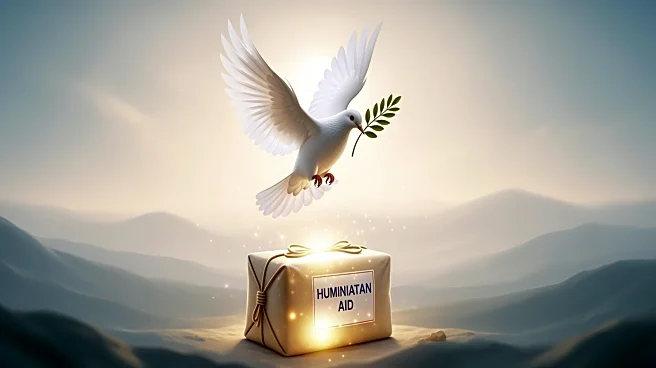What's Happening?
Palestinian-American aid worker Fares Abufares is advocating for increased humanitarian aid to Gaza following a ceasefire agreement. The situation in Gaza remains dire, with significant needs for food, medical supplies, and infrastructure support. The ceasefire has
provided a temporary halt to hostilities, allowing aid organizations to assess and address the urgent needs of the population. Abufares emphasizes the importance of international support to ensure the delivery of essential resources to the region.
Why It's Important?
The call for increased aid to Gaza is crucial as the region faces a humanitarian crisis exacerbated by prolonged conflict. The ceasefire offers a window of opportunity for aid organizations to deliver much-needed assistance, potentially alleviating suffering and stabilizing the area. International support can play a pivotal role in rebuilding infrastructure and providing essential services, which are vital for the well-being of Gaza's residents. The situation highlights the broader geopolitical implications and the need for sustained international engagement to address humanitarian needs.
What's Next?
Aid organizations are expected to continue their efforts to mobilize resources and coordinate with international partners to facilitate the delivery of aid to Gaza. The success of these efforts will depend on the stability of the ceasefire and the cooperation of local authorities. Monitoring the situation closely, stakeholders may push for diplomatic initiatives to ensure long-term peace and development in the region.
Beyond the Headlines
The humanitarian crisis in Gaza underscores the ethical responsibility of the international community to support vulnerable populations. Long-term solutions require addressing the root causes of conflict and investing in sustainable development. The situation also raises questions about the effectiveness of international aid and the need for transparent and accountable mechanisms to ensure aid reaches those in need.
















